Ruchi Acharya's Blog, page 7
June 13, 2024
Unveiling LGBTQ+ Resilience, Mental Health Concerns, & the Healing Power of Love
Disclaimer: This blog article contains discussions on sensitive topics including suicide, and self-harm related subjects. Reader discretion is advised.

Love seeps in naturally it is unpretending, unending, and unsought. It is that ray of hope that can resuscitate life into one's perishing soul. It forms a protective sheath over one’s head made of threads of tenderness, perspicuity, and commitment. It has an endless sweep as it embraces and eases everyone regardless of who one is and who one loves.
Love cannot be labeled as only a feeling it is the very approach that gives life sense. It's the fuel that drives us to meet our goals and coerces us into feats of compassion. It is a glow that guides our lives on the right path. A path that sets us on a self-discovery and also a commitment to others.
A space where love lives it never languishes, it cannot be forced into it flourishes on its own. When we love we enable ourselves to tap into a boundless realm of possibilities and and potential. It empowers us with a keenness and sense of the wonders and beauty that lies in the world.
The potency of love can be glimpsed through the truth that the 795.9 billion population who live around the world speak different languages, look distinct from one another, don different attires, and experience things in different ways all feel connected and sympathetic with one another.
From the time we take birth, it is the love that we perceive at first. It is love that ensures growth and nourishment. As we grow it is love that builds our beliefs, character, strength, and the relationships we make in a lifetime. In essence, love is the only truth, and keeping anyone devoid of it should be an act against nature.
The Love & Resilience of LGBTQ+ Relationships & Bigotry Of the World

Talking of the LGBTQ+ community, a community that radiates love and resilience in its utmost realism. The community holds empathy within their hearts and acts despite the apathy and unappreciation of the world. They realize the need to transcend societal norms and fend for the meaning of love by embracing people for who they are.
Despite their constant effort to spread awareness, remain dedicated to love and voice for oneness and inclusivity in the world. The LGBTQ+ members and the community are often subjected to indifference from people. The people in the society with little awareness through actions around LGBTQ+ rights, the vibrancy, and vitality of their celebratory marches throughout the month, might not be outright in their resistance but deep down it prevails.
The indifference often leads the members of the community into legal battles and microaggressions. The indifference augments and results in the marginalization and trivialization of LGBTQ+ relationships. The LGBTQ+ community often battles against people who perpetuate stereotypes about the members attaching a stigma to the expression of love within the community. Despite the anomalies, LGBTQ+ community members have stood with resilience, and dignity protecting their pursuit of love and equality.
Having said that, while the world continues to toil around its self-restraint and senselessness it's the LGBTQ+ community that has remained at the forefront asking for change and instilling the true meaning of love.
The LGBTQ+ community in its entirety is a ray of hope and it needs to be cherished not chased out.

The LGBTQ+ community undergoes distinctive mental health issues, particularly due to the stigma, intolerance, and a lack of supportive society. Various scientific researches have underscored the amplified preponderance of different mental health issues within this society, underlining the lack of mental health interventions and inclusive approaches. Here are a few common mental health issues faced by the members of LGBTQ+

In comparison to heterosexual and cisgender peers, several kinds of research are invariably showing rising cases of depression among LGBTQ+ members. For instance, an analysis published in the Journal of Consulting and Clinical Psychology found that LGBTQ+ adolescents are more than double as likely to undergo depressive manifestations.

Anxiety disorders that involve Generalized Anxiety Disorder (GAD) and Social Anxiety Disorder, are more persisting among LGBTQ+ members. According to the National Institute of Mental Health, LGBTQ+ grown-ups are more likely to have an anxiety disorder in their lifetime. These soaring cases are often tied to incidents of bullying, harassment, and fear of rejection, which create a constant feeling of insecurity and hypervigilance.
Suicide and Self-Harm:
LGBTQ+ adolescents are specifically helpless, with investigations revealing that they are more than four times as likely to try suicide compared to heterosexuals. The Trevor Project's National Survey found that 40% of LGBTQ+ respondents had considered suicide in the past year. Aspects contributing to this troubling data include family denial, discrimination, and lack of access to affirmative mental care.
Substance Use Disorders:
Substance use disorders are quite high in the LGBTQ+ community. The National Institute on Drug Abuse states that LGBTQ+ adolescents are more likely to use substances, including alcohol, tobacco, and prohibited drugs. This increased use is often a coping mechanism for battling with stress, discrimination, and social isolation.
Post-Traumatic Stress Disorder (PTSD):

PTSD is a more prominent threat for LGBTQ+ members due to higher rates of trauma, including abhorrence, sexual aggression, and intimate partner violence. According to a study in the Journal of Traumatic Stress, LGBTQ+ individuals register higher levels of trauma-related stress than their heterosexual peers. The constant threat of violence and prejudice contributes to chronic PTSD symptoms.
Addressing these challenges demands exhaustive policies, including facilitating inclusive procedures, growing access to culturally qualified mental health care, and encouraging supportive conditions. By arresting and addressing the amazing mental health needs of LGBTQ+ individuals, society can progress toward greater parity and welfare for all.
The Power of Love in Curing Mental Health Challenges
Love, in its various layouts, can be therapeutic. It can be effective healing for mental health challenges. Showing dynamic assistance, relationships, and a sense of belonging can empower LGBTQ+ members.
The power of love in curing mental health challenges cannot be undervalued. The presence of loving relationships—whether romantic, familial, or platonic—provides a secure space for members to communicate their openness, receive validation, and build resilience. Through love, we can encourage confidence and open communication, which are essential for mental health healing and recovery.
Social relationships, including those characterized by love and affection, are vital for mental health, advocating for policies that promote social connection as a public health priority.
By embracing LGBTQ+ members with acceptance and compassion, love helps overcome the consequences of mental health challenges, encouraging emotional well-being and improving the capacity to cope with life's challenges.
In essence, is that measure that can nurture the power that supports mental health and facilitates a sense of hope.
"May Pride Month be a spirited extravaganza of love, parity, and diversity, where every voice is attended, every narrative is praised, and every member feels welcomed for who they are."
ABOUT THIS BLOGGER

Meet Shreya Mishra, she is a blend of passion and purpose, seamlessly weaving the worlds of medicine and content creation. Her love for music and dance infuses rhythm into her life, while her compassionate spirit guides her journey toward healing and expression. Every step she takes resonates with curiosity and creativity, inspiring those around her with her warmth and determination.
May 28, 2024
From Page to Place: Literary Landscapes in English Literature

In literature, the use of setting is one of the most effective methods to convey recurring symbols and themes in the narrative. Two prominent examples of how these motifs are highlighted in novels using setting and landscapes are Kazuo Ishiguro’s dystopian science fiction novel, Never Let Me Go, and Tara Westover’s coming-of-age memoir, Educated.

He uses the setting of each to reveal a different part of the narrative, which he ultimately combines to portray the bleakness of life and critique the flaws of society’s morals. Kathy, Ruth, and Tommy all start at Hailsham, a fictional boarding school where students are raised for a purpose unbeknownst to them and where creativity is prized above all. One of the most significant micro-settings of Hailsham was the woods, which were located at the top of the hill and appeared as a dark fringe of trees to the students casting a shadow over the school. There were all sorts of stories about the woods, most of which terrorized the students and carried dark ideas such as never being allowed back into Hailsham after leaving. The inclusion of the woods shows the usage of fear and is a literal representation of how students were kept in the dark, their true fates intentionally hidden from them to ensure they were as controlled as possible—their youth and innocence only made this process easier.
Meanwhile, the Cottages allow for a transition between the childhood of Hailsham to the real world, and it is also a stage where all three of the characters obtain some semblance of freedom not found in Hailsham. It is noteworthy to realize that Ishiguro chooses to describe the Cottages as remains of old farmhouses. Farms have long been criticized for their exploitation of animals for profit and personal gain, and this setting especially alludes to the students’ similarities to animals being raised for slaughter. The Cottages is also when Kathy, Ruth, and Tommy along with other students formally begin exploring sex, in a “grown-up” manner. The environment where Kathy remembers having sex is one in freezing rooms, pitch dark, and often under a pile of an assortment of old curtains, carpets, and blankets. These conditions relate to the Cottages being placed in old farmhouses, proof that these students have taken to using desperate measures to experience pleasure, essentially becoming products of an inhumane society.
When describing the recovery centers, Ishiguro specifically notes that everything about the comfortable recovery rooms were done in gleaming white tiles, kept so clean that it almost felt like mirrors that reflected shadowy movement all around. Immediately, this evokes a cold, austere, and sterile feeling that serves to further underscore the restriction of individuality in their world. There is also irony in this description because white rooms are commonly associated with psychiatric wards and seclusion rooms. “White torture” is also a form of psychological torture involving extreme sensory deprivation resulting in loss of identity; it can be inferred that the same concept is being used in these recovery centers to maintain conformity. Even though those in power claim that these centers are designed to be comfortable and promote efficient recovery, the “care” is an illusion, a mere facade for the restrictions that are imposed.
Set in the isolated mountains of Idaho, Educated is a poignant story recounting Westover’s thirst for knowledge and freedom amidst being raised in a survivalist Mormon family.

A large part of the novel is set in Buck’s Peak, where the base would swell up into a commanding spire that Westover’s father called the Indian Princess. The image of the Indian Princess is a literal representation of Westover’s ties to her family because while it is a constant shadow that was her ally when she lived in Buck’s Peak, it became a haunting presence when she eventually ventured to explore more of the world. Additionally, Westover highlights that the Indian Princess was always brightest during the spring when the snow began to thaw, a symbol that marked the inevitable passing of time which is also a theme explored in her memoir. Vivid descriptions of the soaring wind and strong gales alongside the quivering sagebrush and thistles evoke a strong sense of nature, grounding us in Westover’s childhood scenes for a glimpse into her background.
Furthermore, the hickory-colored chapel with a small steeple often found in Mormon churches showcases the environment of religious devotion that Westover had been raised in, where—as she grew older—religion became constricting, a point of division between her and her father especially. Toward the end of the book, Westover recounts her six-hour journey to Sacred Grove in Palmyra, New York, where she and her parents entered the forest to find a shining temple topped by a statue of the angel Moroni. She writes of her father’s desperate, earnest expression as he asked her to touch it, believing that the temple grounds had the power to cleanse her. In that moment, Westover has a moment of painful clarity, which she conveys by saying where her father saw God, she saw granite. Her use of these depictions of religion’s impact on her through various places of worship reflects her internal struggle between her family and her freedom, where the imagery of these religious places grows to express her evolving maturity and independence. Even though a part of her desires to earn the love of her parents by “reconverting,” she has come to understand that by leaving Buck’s Peak to gain a formal education, she has come to know that her perception of the world has broadened and has changed.
After reading about the realizations that Westover makes throughout her journey, reading back on her description of the Indian Princess feels bittersweet. Although her father told her countless stories about their little patch of Idaho, after exploring the world beyond her home in the isolated mountains, we gradually realize with Westover that she was never taught what to do when she “could no longer search the horizon for the Princess” — her story thus comes a full circle, where all the little fragmented bits of setting and imagery are tied back together to weave a narrative of her conflict between her taught identity and her created identity.
As seen in these two examples, an author’s usage of setting and landscape in their writing is critical to moving their narrative forward. Whether it be fiction, like Never Let Me Go, or a nonfiction memoir, like Educated, literary landscaping serves to ground the reader in the work and create a sense of place from which symbols and themes are developed. Thus, even though the setting may be often overlooked, the details are intentional choices made by the author, and ought to be carefully evaluated to better appreciate the beauty that is English literature.
ABOUT THE BLOGGER
ISABELLA GAN

Isabel Gan is a high school student from Southern California. She is the founder and editor-in-chief of Paper Cranes Literary along with editing for a number of other literary magazines, and her work appears in The Greyhound Journal and Fleeting Daze Magazine. When not writing, she loves playing the piano, reading up on composers' biographies, and hot soup on rainy days.
May 16, 2024
Reading Can Help You Escape Life’s Rush

In this fast-paced world, success is linked with how much we can achieve in a given time bracket, often leading to a situation where self-care appears as an indulgence rather than an essential. Deep sleep, leisurely meals, a day in nature, or simply reading a good book are viewed as the luxuries of life. Always put away for retirement days, but that day always pulls away when we come closer.
The desire to stay ahead of time and the steady barrage of stimulants are taking a toll on our well-being, leaving us hyperstimulated and detached from the present moment. As we race against time to achieve our goals and outpace the competition, we often find ourselves caught in a never-ending cycle of busyness, where every moment is filled with tasks, deadlines, and obligations. In our quest to stay ahead, we sacrifice the simple pleasures of life, allowing the beauty of the present moment to slip through our fingers unnoticed.
In today's fast-paced world, where busyness is often frayed as a badge of honour, there is a rising tide of chronic stress, anxiety, and burnout sweeping through our society, affecting people of all ages and backgrounds. Progress in technology and constant connectivity have come at a cost. Slowing down will allow us to revive, rest, and rejuvenate.

We live in the age of round-the-clock stimulation through screens, blurring the boundaries between labor and leisure. Every moment is filled with notifications, deadlines, and obligations. In this hustle and bustle, we lose sight of what truly matters. This frenetic time is taking a toll on our physical and mental health.
In such a time, embracing slowness is not just important but essential for our well-being. By doing so, our creative juices will get a chance to flow freely. It's in these moments of quiet reflection that we often find inspiration.
So what’s the ultimate escape from the daily rush?
Reading is one of the most effective ways to escape from the daily rush and embrace slowness in the frantic pace of the modern day. When life is overwhelming and challenging and the weight of the world feels heavy on our shoulders, taking a moment to immerse ourselves in a good book is a powerful tool for nurturing our well-being. Within the pages, solitude becomes a sanctuary, where we can withdraw from the clangor and chaos of the external world. Curled up in a cosy nook at home or a quiet corner in a bustling cafe, reading offers a hideaway from the directions of social exchange and the incessant barrage of notifications.
Opening a book is a step into a timeless zone where the clock seems to stand still, where there's no rush, no pressure, and no deadlines. Instead, we're free to immerse ourselves fully in the story, losing track of time as we journey through its twists and turns. It's a welcome escape from the hustle and bustle of everyday life—a chance to slow down and savor the moment.
Unlike the frenetic pace of scrolling through the internet or binge-watching shows, reading invites us to pause and let the narrative grow at its own pace. It's a gentle reminder to slow down and relish the magnificence of the journey rather than fixating on the goal.

Reading needs us to be entirely conscious, to focus our awareness on the phrases, each paragraph, and the world they invoke. In a world afflicted by distractions and multitasking, reading acts as a form as a form of mindful engagement. As we turn each page with intent and interest, we grow a sense of reality and awareness that grounds us in the here and now.
Now, whether we walk into fantasy and explore faraway galaxies in science fiction or unravel secrets in thrillers, reading allows us to shut our eyes to reality. By engaging ourselves in a spellbinding story, we give our senses a chance to relax and recharge, thus ameliorating stress and enabling a sense of stillness.
When we meet diverse personalities and see the world through their eyes, we dilate our sense of human feelings and experiences. Whether it's feeling the success of overcoming misfortune, the ache of heartbreak, or the bliss of friendship, every tale we immerse ourselves in enriches our emotional intellect. By fraternizing with fictitious personalities, we become better prepared to navigate the elaborateness of relationships and relate more deeply to others.
By exploring compositions of courage, determination, and moral fortitude, books challenge perceptions, encourage personal growth, and empower readers to embrace bravery in their own lives. Whether through fictional tales of heroism or real-life accounts of triumph over adversity, books provide a powerful reminder of the strength that lies within each of us, waiting to be unleashed in the face of life's challenges.
Books serve as mirrors for our emotions and experiences. As we go into the inner worlds of personalities tussling with challenges similar to our own, we acquire untried stances and acuities into our lives. Whether it's realizing the mistakes of fictional protagonists or drawing inspiration from their stability, each portrayal we experience evolves as a spur for personal growth. By immersing ourselves in self-reflection driven by the descriptions we read, we embark on a journey of self-discovery and changeover.
Sharing literary adventures deepens our appreciation for narratives and also toughens our sense of belonging to something larger than ourselves.

Just like physical exercise strengthens our muscles, reading exercises our brains. Engaging with complex narratives, grappling with intricate plots, and deciphering unfamiliar words stimulate our minds and sharpen our cognitive abilities. Moreover, research has shown that regular reading can help prevent cognitive decline as we age, keeping our brains agile and resilient. So, the next time you're torn between scrolling through social media and picking up a book, opt for the latter to give your brain the workout it deserves. Reading and engaging with literature fosters introspection and deep focus and triggers a relaxation response, inducing a sense of calm. Additionally, our brains make links and concoct prospects in the face of rapid change. Furthermore, reading before bed can enhance sleep quality, allowing for better rest and rejuvenation.
When navigating the bustling streets, confined within a cubicle that feels like a cage, or finding the walls of home closing in, it's time to take a detour from reality. Reach for a book and start on a journey into a new truth. Choose your landscape, weave a new tapestry, embrace a new life, and view the world through vibrant lenses. A good book serves as both a getaway car and a quick escape from stressful situations. Cultivating your reading habits will prevent you from being swept away in the tide of information. So, read your life away.
ABOUT THIS BLOGGER

Meet Shreya Mishra, she is a blend of passion and purpose, seamlessly weaving the worlds of medicine and content creation. Her love for music and dance infuses rhythm into her life, while her compassionate spirit guides her journey toward healing and expression. Every step she takes resonates with curiosity and creativity, inspiring those around her with her warmth and determination.
May 8, 2024
10 Must-Read Books Handpicked by Wingless Dreamer
Before we begin, I must confess that I am a serious reader. I carefully choose my books after thorough research, which usually involves asking my friends or consulting my "Book reading list" notes. This approach is much better than going all out at the bookshop and buying books in bulk, only to see them gather dust. Let me start by being completely honest about what I am currently reading.

Yes, it's classic literature. Go ahead, boo me! But this poetry book titled 'Anthem for Doomed Youth' by Wilfred Owen is just what my soul is craving, especially since I've been procrastinating and feeling lazy, often succumbing to depression. Don't judge me; we've all been there. It's natural. So I really needed to read this poem more than Wilfred Owen needed to write it.
With so much happening in the world, from drastic climate change to political elections in many countries, I'm here to try and take your mind off your day-to-day problems and provide a mental boost by recommending a few poetry books from our Wingless Dreamer Collection. As you all know, we work around the clock to bring the highest quality literature to the world. The judging criteria are rigorous, and constructive feedback can be harsh, but it all serves the purpose of keeping poetry alive. Any gibberish published out there is not considered poetry; it needs vision, imagery, and perfect poetic devices.
Anyway, without further ado, let's dive into the top 10 book recommendations this year from the Wingless Dreamer Publisher's collection. These have been highly successful, and how do we define success? Certainly by a deep sense of personal satisfaction, positive reader reviews, and Amazon book rankings.
HEARTS IN ORBIT

If you're looking for a scintilla of gloominess sprinkled with emotions expressed in the most poetic manner possible, then I would suggest going with our book titled, Hearts in Orbit.
The book "Hearts in Orbit," published is a pylon of poetic expressions exuded by both emerging and profound writers from around the world.
Hop onto the journey of reading this exquisite book, especially crafted for English laureates and literary lovers. Together, let's celebrate the art of poetry. Enjoy reading!

After the grand success of Summer Fireflies last year, we received numerous requests from our aspiring writers to conduct a similar writing contest this year. And just like a good publisher, we couldn't say no to our beloved fans. This writing contest was all about bringing the true essence of summer poetry and wilderness to our readers.
Each author paints a vivid picture, inviting you to join their characters on self-discovery, love, and friendship journeys. From the innocence of childhood adventures to the complexities of adult relationships, these stories capture the essence of summer in all its beauty and warmth.
With its gentle prose and captivating storytelling, this anthology is more than just a book—it's a cherished keepsake to be treasured for summers to come. Embrace the magic, embrace the memories, and let Summer Fireflies illuminate your soul. You can get your copy from Amazon.

Oh! This one is my personal favorite, maybe because I am more inclined towards the romance genre. You should check it out if you get easily carried away with soul-cuddling and mind-kissed poetic lines. You will be awestruck reading every poem present in this anthology as our editors carefully handpicked them, making them truly swoon-worthy.
by Sir Phillip Sidney, “Astrophel and Stella”
As Sir Phillip Sidney put has so aptly put, talking about love can seem to be the most difficult thing ever. Often, it is poetry that is best at expressing the matters of the heart. Love Chronicles features poems about love, dreams, and their effects on the heart. If you want to immerse yourself in the myriad shades of love, this Wingless Dreamer anthology is a perfect read! Trust me on this.
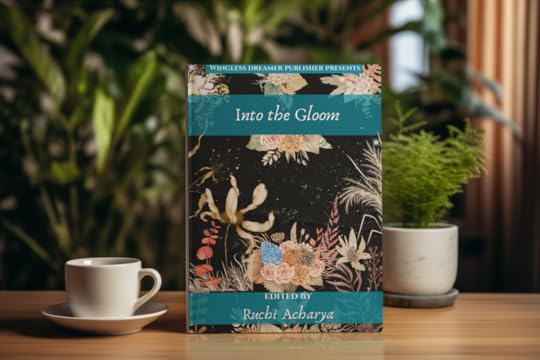
In all honesty, I am a big fan of dark poetry because there are more than 50 different shades of darkness. "Into the Gloom" is a fervent anthology for English laureates who love to explore the dimensions of dark poetry.
This poetry book navigates life's complexities through haunting verses and evocative imagery. Together, let's dive into the coldness and blueness of introspection shown by these dark poets. With profound insights and lyrical prose, "Into the Gloom" invites readers to confront their innermost fears and discover the light within the darkness. I bet, you couldn't agree more with me once you finish reading this poetry book, simply because, once you read this book, it will change your perspective towards dark poetry. Unlike other dark poems, in this book, we have compiled poems that can touch your soul and evoke the sensation of love for the darkness. Be the judge by yourself and check it out.

Another most prized possession book from the Wingless Dreamer Publisher's bookshelf. I am so proud to present our anthology, "Therapeutic Power of Nature," a serene collection of poems and short stories centred around the theme of nature.
What sets it apart from other nature poetry books is that these poems have healing properties, similar to the feelings we get from simply taking a walk on the lush green grass amidst our busy schedules. I'm not kidding when I say I've read this book at least three times because it calms me down. I often get irritated with what life throws at me, so I keep this therapeutic book handy.
Esteemed psychologists widely regard nature as the ultimate form of therapy, capable of calming the mind and soothing the soul. Whether it's taking a leisurely stroll in the park, embarking on wilderness hikes, or simply sitting by a tranquil lakeside, the healing power of nature is undeniable.
With this anthology, we aim to raise awareness about mental health, foster a love for English literature, and celebrate the art of poetry while showcasing captivating artworks. Immerse yourself in the rhythmic poetry and unwind as you embark on a literary journey through the lush landscapes of our anthology. Sit back, relax, and enjoy your summer of 2024 with our collection. This book is now exclusively available on Amazon.

"Breathing Poetry," an anthology by Wingless Dreamer Publisher, where the power of words takes center stage, Within these pages, you will encounter the remarkable works of mind-blowing wordsmiths whose poetry transcends the ordinary and touches the depths of the soul.
Yes, in this book, we have decided to compile all the significant emotional traits. Whether you seek solace in the quiet corners of solitude or yearn for adventure amidst the chaos of life, "Breathing Poetry" is a companion like no other. It is a sanctuary for the weary soul, a refuge for the restless mind, and a reminder that, amidst the hustle and bustle of everyday life, there is beauty to be found in the simplest of words.
So, dear reader, if you crave a moment of respite, a chance to lose yourself in the rhythm of verse, then look no further. "Breathing Poetry" awaits, ready to whisk you away on a journey of discovery and delight. Sit back, relax, and let the words carry you to places unknown.

This is one of our recent books and I am not joking but we have received reviews beyond our expectations. Readers loved it and I must say the book turns out to be phenomenal as well.
Dive into the rich tapestry of human experience with "Threads of Time," a captivating anthology curated by Wingless Dreamer Publisher. Within these pages lies an exquisite collection of prose and poetry, each piece meticulously crafted to evoke a spectrum of emotions. As the entrusted custodian of this literary masterpiece, Wingless Dreamer is deeply honored to present to you a compilation that transcends time itself. From the depths of sorrow to the heights of joy, each word within "Threads of Time" has been carefully selected and woven into the fabric of this anthology, inviting readers to immerse themselves in its profound depths.

Are you a fan of winter just like us? Do you feel the darkness creeping in as the leaves wither and fall? Or do you eagerly wait for the first snowflake to hit your hand? Either way, this anthology will have something for you!
It's a shame how people have portrayed Winter as a sick season. No, there's beauty in that too. Without the winter season, there will be no imperative emotions attached to spring, fall, rain or summer. Personally, I consider the season of winter to be the mother of all.
It’s Crystal Clear! Contains poems from various poets describing the joy of winter, and also the darkness that accompanies it. Check it out.
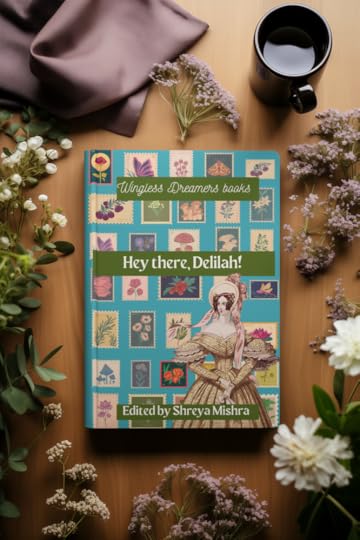
One of our most prized possessions, Hey there, Delilah!
Get yourself drowned in the meanings hidden behind these poetic verses beautifully endorsed in this book. Don't get carried away by the profound love and sentimental poems shown by aspiring poets from all around the world.
Each poet weaves a spellbinding narrative, captivating the mind and touching the heart. As you journey through this anthology, every piece leaves an indelible mark, compelling you to revisit its pages time and again, finding solace and inspiration within its words. Don't miss out on this immersive and unforgettable read that promises to resonate with you long after you've turned the final page.

The web of poetry extends even further as we introduce our open-themed anthology book ‘Cradle Of Balladry’. The infinite stream of poetry continues to flow as we bind a multitude of genres such as Love, Anger, Compassion, War, and Historical poetry; within two cerulean covers. Explore the depths of poetry with us without any barriers or restrictions as poets from all over the world come together to bring you a few of their best works. Enjoy your journey.
I hope this blog post proves useful for avid readers seeking direction. A reader must always remain hopeful in their quest to find the right book with time. If you haven't found one yet, perhaps the universe is signalling for you to write your own. How does that idea sound to you? As the founder of Wingless Dreamer Publisher, I truly appreciate the tranquillity one can gain from reading and writing in this chaotic world. All you need is the right book, a sip of warm hot chocolate at your favourite coffee shop, and some noise-cancelling AirPods or the melodious sound of rain playing in the background. Life's good if you know how to make it. I insist on reading these amazing books, not just because they are from our printing press, but because they are genuinely thought-provoking and captivating, as mentioned above. Happy reading!
ABOUT THE BLOGGER
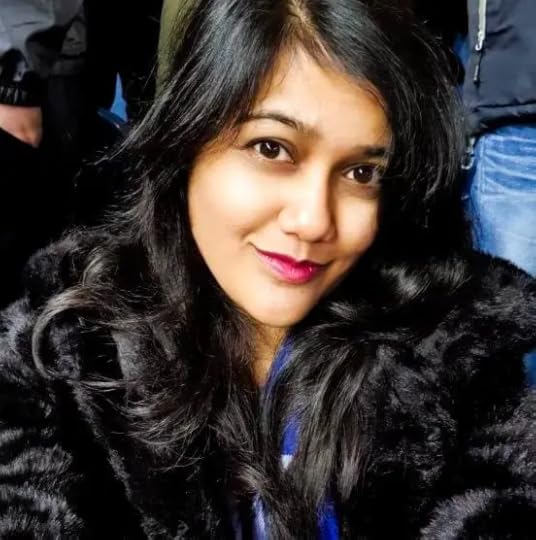
Ruchi Acharya, hailing from India, is a distinguished English Laureate. Over the past two years, she has gained immense recognition for her remarkable publications, with her works appearing in more than 100 renowned platforms. Ruchi's true passion lies in supporting fellow writers and artists, evident through her establishment of Wingless Dreamer Publisher, a company dedicated to empowering and promoting creative individuals.
With a profound interest in Poetry, Ruchi delves deep into the intricacies of these literary realms. Among her cherished literary treasures, works by Jane Austen holds a special place in her heart.
Ruchi Acharya has become a prominent figure in the literary world, having made appearances in numerous interviews spanning the globe. During these engagements, she passionately advocates for the appreciation of poetry, emphasizing that human emotions are at the core of our existence. She urges others not to take this profound aspect of life for granted.
April 25, 2024
Surviving Solitary Confinement: Writing Your Novel

Being a writer and having three pending novels lying in the dust on my bookshelves, I can understand how difficult it can be to live in solitary confinement and stay motivated to finish at least one page every day.
When you're having a showdown with solitary confinement while working on your novel, it's important to maintain a sense of routine and creativity. Having a routine in your life will forge discipline which is required to keep your activities in check and to ensure that you're utilising your time to the fullest. On the other hand, Creativity is the magical pixie dust that needs to be sprinkled from time to time to curate a masterpiece flowing through your soul and getting inked straight onto the papers.
Start by establishing a daily schedule that includes dedicated writing sessions, breaks for physical activity or relaxation, and regular meals. Use this time alone to seep deeper into your characters and plot, allowing your imagination to flourish without distractions. Sometimes, your brain needs a change of view apart from the screen to let the creative juice flow. You may never know the significance of perspective change until you put it into practice. By taking a break and returning to your literary piece you will be able to see your work from a fresh perspective. Do it more often. Let's discuss how to attain all this below one by one:
START YOUR DAY WITH MORNING SWEAT
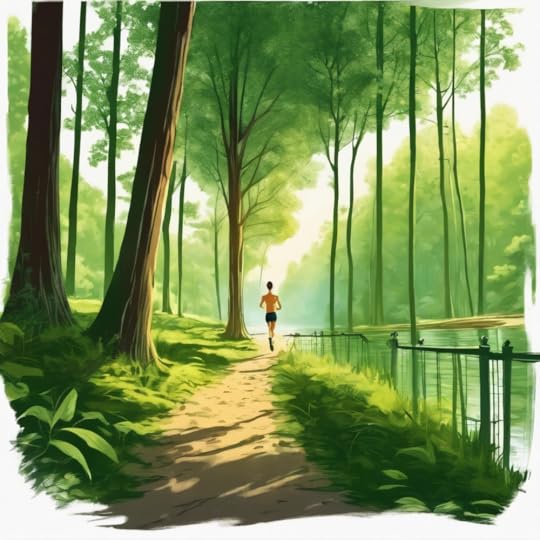
Begin your morning with sweat—yes, you heard that right! Morning sweat is crucial for awakening your dormant mind and body. Without igniting that adrenaline rush from the depths of slumber, you won't be able to produce the work of an English laureate. So, no matter how much you despise morning exercise, in the name of English Literature, you must sacrifice your comfort and spring into action. You don't have to necessarily hit the gym; even jogging, running, home workouts, or swimming will suffice as long as you exert yourself and break a sweat.
2. RELAX YOURSELF AND CONNECT TO YOUR SPIRITUAL SENSE
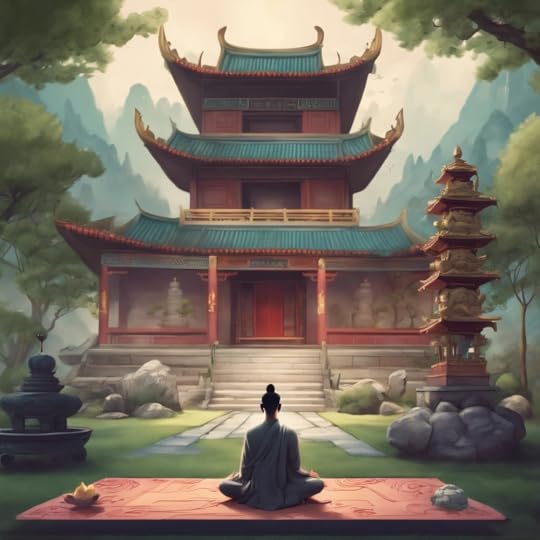
Relaxation isn't always as straightforward as it appears. Many people mistakenly believe that simply doing nothing qualifies as relaxation, but its meaning goes much deeper. True relaxation is essential for maintaining our overall well-being and nurturing a profound connection to our spiritual selves. In today's fast-paced, commercialized world, we often find ourselves weighed down by stress, experiencing frequent mood swings, developing indecisiveness, and feeling disconnected from our inner selves and the peaceful world around us. This can lead to a blockage in our creative flow and limit our ability to see beyond the predictable.
By cultivating a sense of inner quietude, balancing our thoughts and actions, and tapping into inner peace and tranquility, we can release tension from our bodies and achieve genuine relaxation. Here are a few activities and techniques you can try:
3. COOKING HEALTHY MEALS

One of the perks of eating your favourite meal is that it releases one of the happy hormones called Dopamine. Consuming your favourite food triggers the release of dopamine, a neurotransmitter associated with pleasure and reward. This surge in dopamine can elevate mood and provide a sense of happiness and satisfaction. Treating yourself to your favourite food is a form of self-care and self-indulgence. We all need to feel loved from time to time, after all, we are social animals. Taking the time to enjoy something you love can promote feelings of self-worth and fulfilment, contributing to overall mental wellness. Practising mindful eating while enjoying your favourite food can enhance the experience and promote mindfulness. Being fully present and savouring each bite can increase feelings of gratitude and contentment, leading to a mental boost. So, do take time to cook your favourite meal.
"66 days Challenge"
As a peak performer, it's crucial to prioritize the well-being of your heart, mind, and stomach, as they are key to unlocking your creativity. Remember, it typically takes about 66 days for a behavior to become a habit. By taking small steps every day, you'll start to see positive changes within yourself. Don't allow negative thoughts or demotivation to take control. Instead, consciously choose to do the opposite and nurture a positive mindset.
ABOUT THE BLOGGER

Ruchi Acharya is a multi-talented author hailing from India who has a passion for writing poems on nature, war, and love. Despite having a strong background in Electrical and Electronics engineering, English Literature, and Business Analytics, Ruchi pursued her creative side and found her love for writing. Currently studying Shakespearean Literature, Ruchi has always had a deep appreciation for the literary arts.
Ruchi is the owner of Wingless Dreamer, an international publishing company that focuses on helping writers and artists find their footing in the industry. Her work with Wingless Dreamer reflects her dedication to the betterment of the writing and art communities.
In her spare time, Ruchi volunteers for social services and enjoys spending time outdoors, finding inspiration for her poetry in the natural world. With her many talents and interests, Ruchi continues to be a rising star in the literary world, with many eagerly anticipating her next work.
April 15, 2024
How can personal loss inspire powerful writing?
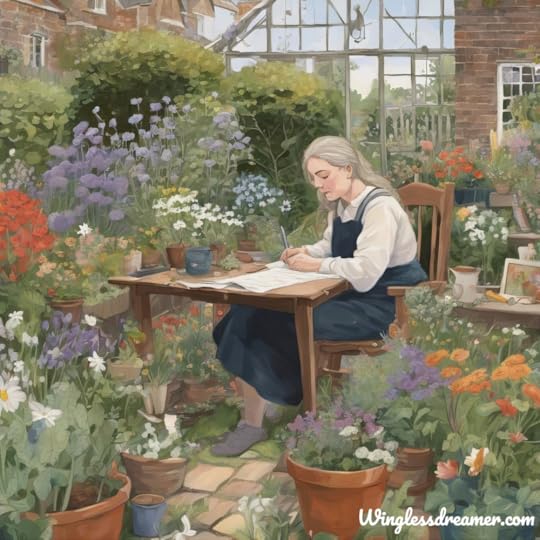
I know it hurts. I understand the pain. I didn't grasp the power of words in the midst of grieving. I lost a friend last week and it took me another week to finally write about it. While my heart is still processing the grief I've accumulated over the past few days, I thought, why not discuss the significance of writing about personal loss? Well, I am here now constantly hitting "backspace" after every sentence and trying to express my sentiments. This is my first time so, kindly, bear with me.
When I heard the news, I felt like a surge in my heart, turning it blue as it fought against the flow of deoxygenated blood. For the first few hours, I was praying to God, let this news turn out to be a hoax, but, unfortunately, my gravest fears rose to the surface and the dark secluded energies surrounded me with the indefinite feeling of helplessness, sadness and agony. How do I process that? In all honesty, for the first 24 hours, I cried alone in my apartment. I didn't respond to any calls and hung in there in my solitary confinement. Going through her images and videos on Instagram and reading captions made me realise that time is ticking and this world is not becoming a better place to live in. Just like any other mourner, I begin blaming society for how hostile environment we humans have created for ourselves that has the potential to take away even the brightest star away from our sky.
She was a kindred spirit, a woman full of life living her dreams in her late 20's. I won't talk more about her but I would like to share this poem I wrote especially for her.
COUPLET - BRAVE-HEARTED MAIDEN BY RUCHI ACHARYA
In the loving memories of Shraddha Ghosh
She was like free verse, unforeseeable and unkissed, a strong-headed maiden
Her friends say, “We’re not close, though distant, she resonated within us somewhere.”
She never wanted me to share her story, so my grief remained silent for thousands of years
She's gone now, but I can see her in the amber sky and in the green leaves trekking to heaven
She mastered hiding her pain behind flawless laughter and a driven stare
I must never place trust in myself for interpreting people's emotions through their fake gestures
Plain in sight, right in front of my eyes, she suffered, oh, boy! She suffered
Each time my heart sinks, ponders at the thought of the world forever losing a brave daughter
Skilled and polished was she, now dancing in the moonlight among the gnomes and fairies
Through this poem, I will let her go and flow in these words, for she was a lover of poetry
Just like summer in Italy, English winter, she was an emotional seesaw within
In weighted steps, she freed her soul from the depths of misery's hold and life’s mystery
I stopped wondering about the reasons "why?" Instead, healing and helping in awry
I see her mother's eyes, hear her best friend's heavy voice—both helpless, yet she well lived her life
Before we jump into the discussion of why writing is one of the most important tools during the process of grief, let us all unanimously come to the agreement that
It's not a state, it's the process. Henceforth, a few of the key points must be taken into consideration:
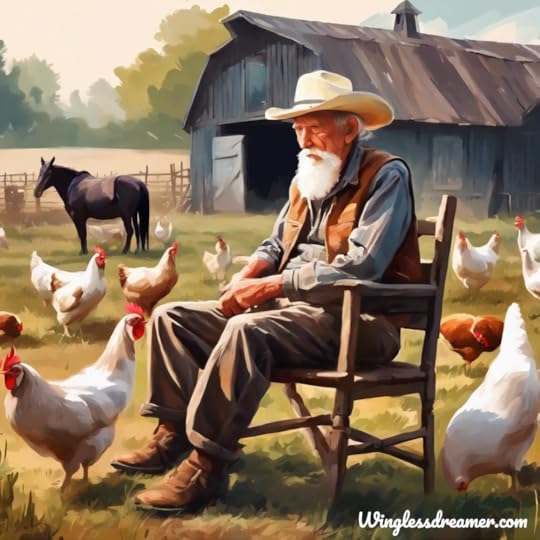
There are no shortcuts or remedies to bereavement. Go through the whole process. Cry, scream, show disapproval, isolate (sometimes it helps greatly), and self-talk.
Show some compassion towards yourself. I know it's extremely difficult to follow up the daily routine but keep pursuing it even though you hate it. Avoid self-blame.
Avoid negative self-talk and push yourself deliberately towards the darkness
Music helps to a certain point. Let your pain flow like a river along with the rhythmic effects of the music.
Validate your feelings and share your agony with your family, friends or someone trustworthy. We are social animals, we do need warmth in such ground-breaking and heart-throbbing life events.
With that out of sight, let's indulge in the power of writing.

It' 's alright, if you're behaving out of your character because experiencing personal loss can evoke a range of intense emotions such as grief, sadness, anger, and longing. Henceforth, emphasises more on why writing plays a mere tool to activate resonancy with readers on a deep emotional level.
Writers who have experienced personal loss often develop a heightened sense of empathy for others who are going through similar experiences. This empathy can help them connect with readers who have also experienced loss, creating a sense of solidarity and understanding.
Personal loss often prompts individuals to reflect on their own lives, values, and beliefs. This process of introspection can lead to profound insights and self-discovery, which can be expressed through writing.
Writing about personal loss can serve as a form of catharsis, allowing writers to process their emotions and find meaning in their experiences. By transforming their pain into art, writers can find a sense of closure and healing.
While personal loss is inherently individual, it also touches on universal themes such as love, loss, resilience, and the human condition. By tapping into these universal themes, writers can create writing that resonates with a wide audience and has the power to evoke empathy and understanding.

Ruchi Acharya, an Indian-born writer born in 1995, is the Founder and CEO of Wingless Dreamer Publisher, a global platform dedicated to uplifting writers and artists. Holding a summer graduation in English Literature from the University of Oxford, Ruchi's poetic prowess shines through her acclaimed work, including the poetry book "Off the Cliff," available on Amazon. Recognized in over 100 journals worldwide, she advocates for the preservation of literature, culture, and history.
Her literary knowledge has been widely applauded and shared on InterNations, Viewless Wings Podcast, and on various other reputed platforms. Ruchi, a passionate explorer of historical sites, resides in Mumbai, immersing herself in its vibrant culture. Her dedication to fostering creativity and encouraging aspiring writers positions her as a leading figure in the literary realm.
Website: https://www.ruchiacharya.com
March 24, 2024
Top 5 Morning Rituals to Boost Your Brain Power
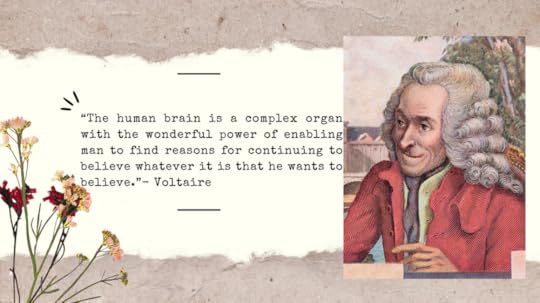
Expanding the words of Voltaire, the human brain is a brilliance of nature, a testament to the immortal creativity of evolution and the complexities of the mind. Our brain’s power lies in its ability to question, learn, and structure the world. At its most meaningful, its power includes the ability to sense beauty in the ordinary, to unveil truths in the gloom, and to harmonise varying ideas.
Think of Jorge Luis Borges, William Shakespeare, and Leo Tolstoy, whose sharp brains, deep insight into human nature, philosophical and psychological depth, complex plots, and mastery of language made them some of the most eminent authors.
Today, we live in a world plagued with intricacy and suspense, and the power to think critically and creatively is more important than ever. We have to boost our brain’s capacities and empower it to steer the challenges of life with stability. We have to harness the power of logic and vision to crush blocks and grab opportunities.

The brain's plasticity appears as a wonder, where neural links can be developed and redone in response to learning. Like a sculptor, we can shape our brains, adjusting them to new challenges and domains with versatility. Boosting brain power is a journey of self-discovery and maturation. We have to delve into activities aimed at unfurling the full potential of our minds.

Enliven the brain with a rejuvenating gulp of a morning detox drink that is rich in antioxidants, vitamins, and vital nutrients that can help wash out toxins and raise blood gush to the brain.

Stimulate the brain’s power with a sunrise stroll through nature and morning exercises; breathing in oxygen that is vital for cognitive rendition. Simply do it in the convenience of the home and stretch the body to the tune of an optimistic brain and heart in the tranquillity of the dawn.

Devot a few mindful hours for the perfect mind-body consonance. Engage in cogent breathing patterns and guided meditation to boost neuroplasticity, which enhances awareness and equips the brain with dynamic regulation, allowing it to approach tasks with clarity and peace.

A wholesome breakfast can regulate all-around cognition. Mesmerize the mind with a medley of multicolour fruits rich in antioxidants, nuts high in omega-3 fatty acids, dark leafy greens plenty in vitamins, and food items with high-fibre carbohydrates, protein, and healthy fat.

Boost curiosity and inventiveness by melding imaginative initiatives into the morning routine. Either fix a few minutes to write a few pages of introspections to unclog the mind, sit with a spellbinding textbook, or learn a new craft. Cognitively stimulating activities can encourage neurogenesis and reinforce neural networks, boosting memory, and cognitive flexibility.
Our brain is our perfect ally, just as it stands ready to empower you, it thrives with the nurturing support we provide. Listen to its whispers and engage in the enriching activities outlined above to develop a more profound connection with it. By doing so, we can unlock the gateway to limitless potential, harnessing the transformative power to achieve wonders beyond imagination.
ABOUT THE BLOGGER
SHREYA MISHRA

Meet Shreya Mishra, she is a blend of passion and purpose, seamlessly weaving the worlds of medicine and content creation. Her love for music and dance infuses rhythm into her life, while her compassionate spirit guides her journey toward healing and expression. Every step she takes resonates with curiosity and creativity, inspiring those around her with her warmth and determination.
February 28, 2024
Exploring the Rich Tapestry of Egyptian Literature: From Ancient Epics to Modern Poetry

Egyptian literature boasts an illustrious history, spanning thousands of years and encompassing a diverse array of genres, styles, and themes. From the epic tales of gods and pharaohs carved into the walls of temples to the lyrical poetry of contemporary writers, Egyptian literature reflects the country's rich cultural heritage and enduring literary tradition. In this article, we'll delve into the evolution of Egyptian literature, exploring its ancient roots, key literary movements, and notable writers who have shaped the literary landscape of Egypt.
The origins of Egyptian literature can be traced back to the inception of civilization, with some of the earliest examples dating back to around 3100 BCE. Ancient Egyptian literature encompassed a wide range of genres, including religious texts, historical inscriptions, wisdom literature, and literary works such as poetry and stories.
Another prominent genre is the "Mythological Texts," which recounted the stories of the gods and goddesses worshipped by the ancient Egyptians. These myths were often depicted in religious texts, such as the Pyramid Texts and the Book of the Dead, and served as a guide for the deceased in the afterlife.
Poetry also flourished in ancient Egypt, with hymns, love songs, and narrative poems being composed and recited by bards and court poets. The "Great Hymn to the Aten," composed by the pharaoh Akhenaten, is one of the most famous examples of ancient Egyptian poetry, celebrating the sun god Aten as the source of life and light.
With the Arab conquest of Egypt in the 7th century CE, Arabic became the dominant language of literature and culture in the region. This period saw the flourishing of Islamic literature in Egypt, with scholars and poets producing a wealth of works in various genres, including poetry, prose, and religious texts.
One of the most influential figures of this era was the polymath Al-Jahiz, whose literary works encompassed a wide range of topics, including natural history, theology, and philosophy. Al-Jahiz's wit and intellectual curiosity made him a seminal figure in the development of Arabic literature and scholarship.The Mamluk period (13th to 16th centuries) witnessed a golden age of Arabic literature in Egypt, with prolific writers such as Ibn Khaldun, Ibn al-Farid, and Al-Maqrizi producing enduring works in poetry, history, and theology. The epic poem "The Diwan of Ibn al-Farid" remains one of the masterpieces of Arabic literature, celebrated for its mystical themes and lyrical beauty.
The modern era has seen the emergence of a vibrant literary scene in Egypt, with writers exploring a wide range of themes and styles in their works. From the pioneering feminist writings of Huda Shaarawi to the existentialist novels of Naguib Mahfouz, Egyptian literature has continued to evolve and adapt to changing social and political landscapes.

One of the most significant developments in modern Egyptian literature was the rise of the "Nahda" or Renaissance movement in the late 19th and early 20th centuries. Influenced by European literary trends and nationalist ideologies, Nahda writers sought to revitalize Arabic literature and promote social and cultural reform in Egypt.
Prominent figures of the Nahda period include Taha Hussein, who championed the cause of Arab cultural revival and modernization, and Muhammad Husayn Haykal, whose historical novels and political writings played a key role in shaping Egyptian nationalism.In the latter half of the 20th century, Egyptian literature witnessed a surge of creativity and experimentation, with writers such as Nawal El Saadawi, Sonallah Ibrahim, and Alaa Al Aswany challenging societal norms and pushing the boundaries of literary expression. Themes such as feminism, political dissent, and social injustice became increasingly prevalent in Egyptian literature, reflecting the turbulent times in which these writers lived.
Egyptian literature is a testament to the enduring power of the written word and its ability to capture the essence of a culture and society across centuries. From the epic poetry of ancient pharaohs to the contemporary novels of modern-day writers, Egyptian literature continues to inspire and provoke thought, offering a window into the soul of a nation rich in history and tradition. As new voices emerge and old themes are reimagined, the literary legacy of Egypt remains a vibrant and ever-evolving tapestry of human experience and imagination.
ABOUT THIS BLOGGER
Nadelina Agopoglu, American Armenian, is a lifelong writer. Nadelina firmly believes in unconditionally supporting creatives in their production, evident through her work at Wingless Dreamer Publisher, a company dedicated to empowering and promoting creative individuals.
With a profound love and fondness of Armenian and Women’s Literature, Nadelina explores the intricacies of these distinguished literary domains. Among her favorite literary pieces are In the Dreamhouse by Carmen Maria Macchado and The Fool by Raffi.
Nadelina Agopoglu has been preparing her debut in the literary world, having written multiple short stories and a poetry collection over the span of a few years. During her time writing, she has undertaken many opportunities in order to bring her works to their highest potential by working with other creatives and by constantly consuming various pieces of literary work. She advocates for the accessibility of creative production, and strongly believes that everyone should be able to follow their passions and have their work recognized.
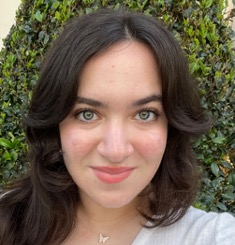
February 19, 2024
ECHOES OF OLYMPUS: EXPLORING THE LEGACY OF GREEK POETRY
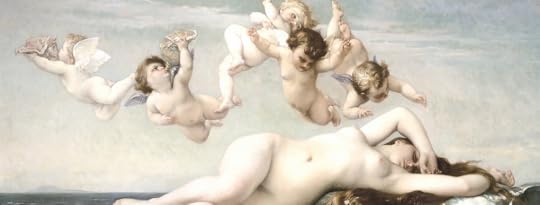
Greek poetry originated in the 7th century BCE with the oral tradition of epic poetry, exemplified by Homer's "Iliad" and "Odyssey." Lyric poetry emerged in the 7th to 6th centuries BCE, focusing on personal expression and emotion, as seen in the works of Sappho and Pindar. This laid the foundation for Greek literary traditions. Greek poetry also contributed to developing literary forms, language, and rhetoric, influencing subsequent literary traditions from Rome to the Renaissance and beyond, leaving an enduring legacy in world literature.
Common themes in Greek poetry include love, nature, mortality, heroism, the gods, and the human condition. Poets often explored emotions, relationships, and the interconnectedness of life and death. They also celebrated beauty, honour, and the pursuit of knowledge, reflecting the values and concerns of ancient Greek society.
Epic poetry

Epic poetry held a central role in ancient Greek culture, reflecting its heroic ideals, myths, and historical narratives. Homer's "Iliad" and "Odyssey," composed around the 8th century BCE, stand as iconic examples of this tradition. The "Iliad" recounts the events of the Trojan War, particularly focusing on the wrath of Achilles and its repercussions for both mortals and gods. Themes of honor, fate, and the complexities of human existence are woven throughout, creating a rich tapestry of heroism and tragedy. In the "Odyssey," we follow the arduous journey of Odysseus as he endeavors to return home after the war, encountering mythical creatures, divine interventions, and personal challenges along the way. Through Odysseus' trials, the poem explores themes of resilience, cunning, and the profound longing for home.
The enduring legacy of Greek epic poetry persists through the ages, inspiring subsequent generations of poets and writers. From Virgil's "Aeneid" in ancient Rome to Dante's "Divine Comedy" in the medieval period, and even into the modern era, the themes and characters of Homer's epics continue to captivate audiences and stimulate the collective imagination of humanity.
Lyric poetry:

Greek lyric poetry encompassed a diverse range of themes, styles, and forms. It was primarily performed with musical accompaniment, often on instruments like the lyre, hence the term "lyric" poetry.
One of the most renowned lyric poets was Sappho of Lesbos, whose work focused on themes of love, desire, and the complexities of human emotions. Her lyrical verses, known as fragments, have captivated readers for centuries with their beauty and intensity.
Another prominent figure in Greek lyric poetry was Pindar, celebrated for his odes composed for victors in athletic competitions like the Olympic Games. Pindar's odes were characterized by their grandeur, lofty language, and elaborate praise of the victors' achievements, serving to immortalize their feats in verse.
Elegy:
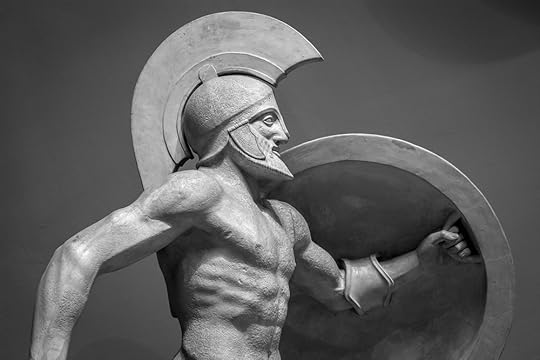
In ancient Greece, elegy was a poetic form characterized by mournful or reflective themes, often expressing sorrow for the dead or lamenting loss. It served as a vehicle for personal and communal grieving, as well as contemplation on mortality and the passage of time. Notable Greek elegiac poets include Callinus, Tyrtaeus, and Mimnermus, who composed elegies both as expressions of individual emotions and as reflections on societal upheavals, such as war and political turmoil. Elegy held a significant place in Greek literature, influencing later poets and continuing to resonate as a poignant and evocative form of poetic expression.
Greek poetry boasts a rich tradition with numerous notable poets across various periods. Here are some of the most prominent:
1. Homer:
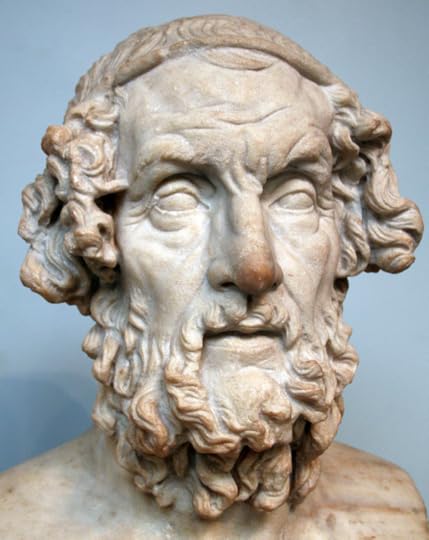
The legendary poet of ancient Greece, is credited with composing two epic masterpieces: the "Iliad" and the "Odyssey." These monumental works narrate the Trojan War and the journey of Odysseus, respectively, shaping the foundation of Western literature and profoundly influencing subsequent generations with their timeless themes and characters.
2. Sappho:
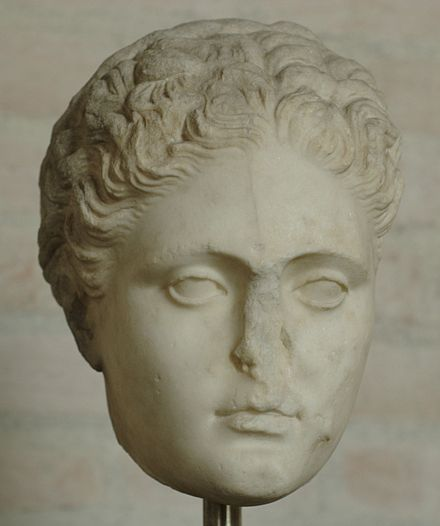
A renowned lyric poet from ancient Greece, composed emotionally rich verses exploring themes of love, desire, and beauty. Though much of her work is lost, surviving fragments reveal her profound influence on poetry, particularly her intimate expressions of longing and the complexities of human emotion.
3. Pindar:

An esteemed lyric poet of ancient Greece, crafted choral odes, notably victory odes (epinikia), praising triumphant athletes in the Greek games. His compositions celebrated the glory of athletic achievement, intertwining myth, praise, and moral teachings, exemplifying the grandeur and splendour of Greek culture and its ideals.
4. Hesiod:

He authored didactic epic poems "Works and Days" and "Theogony." "Works and Days" offers practical advice on agrarian life and ethical conduct, while "Theogony" explores the genealogy and cosmology of the Greek gods, shaping early Greek mythology and influencing subsequent literary and philosophical thought.
GREEK DRAMA:

Ancient Greek drama occupies a significant position in the annals of literature and theater, tracing its roots back to the 5th century BCE. Thriving primarily in Athens, it became an integral aspect of the city's cultural and civic fabric. Embracing various genres such as tragedy, comedy, and satyr plays, Greek drama showcased distinctive characteristics and purposes, fostering a rich tradition that resonates through the ages.
Tragedy, arguably the most eminent form of ancient Greek drama, reached its pinnacle through the works of illustrious playwrights like Aeschylus, Sophocles, and Euripides. Aeschylus, often hailed as the progenitor of Greek tragedy, introduced groundbreaking innovations such as the utilization of multiple characters and the introduction of a second actor on stage. His renowned trilogy "The Oresteia" delved into profound themes like fate, justice, and the divine, leaving an indelible imprint on the genre.
Sophocles, another luminary in the realm of Greek tragedy, is renowned for masterpieces like "Oedipus Rex" and "Antigone." His plays are distinguished by intricate characterizations, profound emotional depth, and the exploration of moral quandaries. Sophocles' depiction of tragic heroes grappling with inexorable forces epitomizes classical tragedy, resonating with audiences across generations.

Euripides, though considered unconventional compared to his predecessors, brought a unique flair to Greek tragedy. Works such as "Medea" and "The Bacchae" challenged conventional notions of heroism and morality, delving into the darker facets of human nature with empathy and psychological acuity. Euripides' groundbreaking exploration of women's roles within his dramas offered a nuanced portrayal seldom seen in ancient literature.
In contrast, Greek comedy, epitomized by the satirical genius of Aristophanes, provided a lighter, more satirical outlook on contemporary society and politics. Aristophanes' comedies like "The Clouds" and "Lysistrata" employed humor, parody, and fantastical elements to critique social norms, political figures, and philosophical ideologies of the time. Through sharp wit and playful satire, Aristophanes skewered various aspects of Athenian life while addressing enduring themes of power, corruption, and human folly.
Satyr plays, a lesser-known genre of ancient Greek drama, amalgamated elements of tragedy and comedy, focusing on mythological themes and ribald humor. While complete examples of satyr plays are scarce, they formed an integral part of the dramatic festivals honoring the god Dionysus, contributing to the diverse tapestry of Greek theatrical tradition.
In conclusion, the legacy of ancient Greek drama and its dramatists endures, shaping literature, theater, and culture to this day. Through their exploration of human experiences, moral quandaries, and societal dynamics, playwrights like Aeschylus, Sophocles, Euripides, and Aristophanes enriched the artistic landscape of their era and bestowed timeless insights into the human condition.
IMPACT OF GREEK LITERATURE:
During the Renaissance, the revival of classical Greek texts ignited a fervent interest in ancient Greek literature, philosophy, and art. Scholars like Petrarch and Erasmus championed the study of Greek works, leading to a resurgence of humanism and a renewed emphasis on individualism, reason, and critical inquiry. Greek myths, dramas, and philosophical treatises inspired artists, writers, and thinkers to explore new ideas and modes of expression, fostering a period of intellectual and cultural rebirth.
In the Neoclassical era, which emerged in the 18th century as a reaction against the excesses of the Baroque period, Greek literature served as a model of aesthetic purity, rationality, and order. Neoclassical writers and artists sought to emulate the clarity, restraint, and moral values found in ancient Greek texts, resulting in works characterized by balance, harmony, and classical motifs. The principles of Greek literature guided the development of genres such as the neoclassical tragedy and the heroic epic, reflecting a return to classical ideals of beauty and virtue.
In the modern era, Greek literature continues to exert a significant influence on literature, philosophy, and popular culture. From the existentialist themes in the works of Nietzsche and Camus to the narrative structures of contemporary novels and films, echoes of Greek mythology, drama, and philosophy permeate modern artistic expression. The enduring relevance of Greek literature lies in its exploration of universal themes such as love, fate, morality, and the human condition, resonating with audiences across time and space.
ABOUT THE BLOGGER
MRUNAL RAJADHYAKSHA

Mrunal Rajadhyaksha is a student currently studying English Literature in Ruia College. She is the head of the editorial team of The Ruiaite Magazine, and an avid participant in cultural festivals happening around her. She is passionate about reading, art and history, and the sea. She plays the guitar as a hobby.
February 11, 2024
THE SIGNATURE BOOK OF EVERY ERA OF LITERATURE: A GUIDE TO READING CLASSICS FOR BEGINNERS
Reading classics is a journey into some very wonderful stories, which become a lot more accessible once the reader breaks through the initial barriers of the somewhat weird-sounding language, the convoluted sentences, and the unfamiliar vocabulary. As someone whose first language isn’t English, classics can sometimes become a cause for frustration at the inability to understand. However, there are a few methods for beginners, and this one has been tried and tested by yours truly, so there’s a larger chance it’ll be the one to lead readers looking to get into classics to the best way to enjoy it.

Pick up a twentieth-century novel, and then go to a nineteenth-century poetry collection, and then to an eighteenth-century essay collection, and then to a seventeenth-century play, and so on. This gives you levels of familiarity to work with as you start out, because the language used in later literature is more familiar. As you work your way back through the eras, it’ll become easier to trace the etymology of some words, and you’ll gradually develop an ability to pick up on what seemed unfamiliar or difficult to understand before.
So, today we have a few books for you that you can begin with — two for each era!
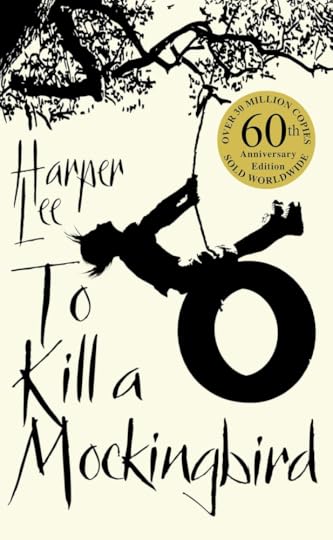
For this, we have Harper Lee’s novel To Kill a Mockingbird, published in 1960. The story is told through the eyes of seven-year-old Jean-Lousie “Scout” Finch. The novel takes on a very “innocent” approach to depict the racial tensions in 1960s America, and the various aspects of a middle-class white household during the era — education, play, religion, and values. Jean-Louise's perspective on the world as a young child questions the systems of law, racial discrimination, and “adult” secretiveness.
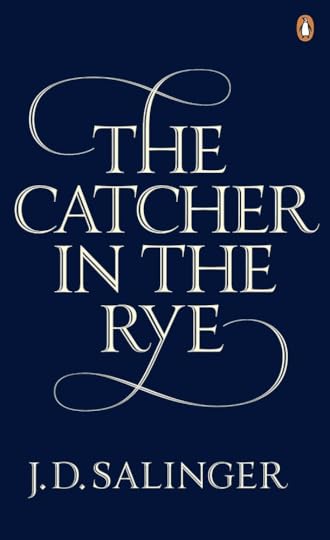
The second book that we have is further back on the chronology by a decade. Published in 1951, The Catcher in the Rye by J.D. Salinger became a widely read, and controversial, novel on the effects of the post-war world, with its lack of “real” meaning, on mental illness, and on the lives of the youth. Holden Caulfield, the poster boy for the “needless” rebellious spirit of the youth, narrates the story of his dropping out of school and his journey through various places in the next three days.

Going further back in time, we can talk about James Joyce’s novel Ulysses, published in 1920, which is an adaptation of the classical Greek tale of the Odyssey, written by Homer. The novel — with its length of about a thousand pages — spans one day where Stephen Daedalus, Leopold Bloom, and Molly (Leopold’s wife) are supposed to be the representations of a modern-day Telemachus, Odysseus and Penelope. The novel is rich in prose, and satire, and is often considered one of the most successful attempts at a stream-of-consciousness style of writing.

Written closely to Joyce’s novel is Marcel Proust’s In Search of Lost Time, published first in 1913. It is a book that spans seven volumes, where the protagonist — who is never really named, since it’s first-person narrative — narrates his experience of childhood and growing up in France in the early 20th century, along with reflections on time, memories, and the lack of meaning in the modern era.
Both of these novels are written in the stream-of-consciousness style of writing, which is a characteristic of the modern era. It’s a great way to get into reading longer passages and non-linear narratives.
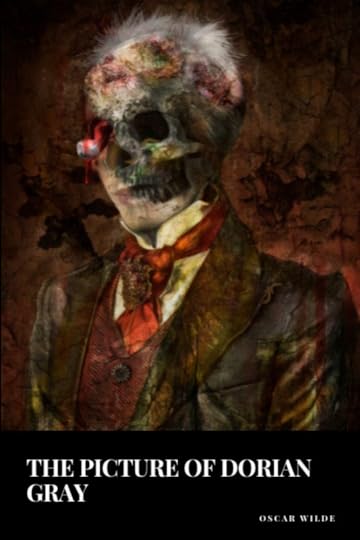
Starting with the later period of the Victorian era, we have The Picture of Dorian Gray by Oscar Wilde, published in 1890. In this, Dorian Gray, a handsome youth, befriends a painter and an upper-class man who create a portrait of him which ends up being a lot more than just a portrait. The novel deals with issues of morality — a common theme during the Victorian era — and of guilt, youth, and regret. It’s now considered a classic in Gothic fiction.

Another novel, published about 30 years before it, is perhaps one of the best-known novels to readers. The Tale of Two Cities, by Charles Dickens, published in 1859, is a historical novel that is set in the years before the French Revolution. Known for its realism, the novel is an impressive work of fiction, although it wasn’t very engaging to me. (And I’ve read it twice!) It tells the story of the Manettes, a family who was affected by the growing unrest between the English and French relations before the French Revolution, along with the society they are living in — a society riddled with caste conflicts, poverty and hunger.

The first novel that we will be looking at is Mary Shelley’s Frankenstein, first published in 1819. It was one of the first classics I read, and I’m absolutely in love with it to this day. It tells the story of Victor Frankenstein, a student of Science and his experience with creation. It deals with themes of the God-function, creation and destruction, isolation and “fitting in”. With some very interesting monologues sprinkled with gothic elements, the novel encapsulates the romantic spirit pretty well.
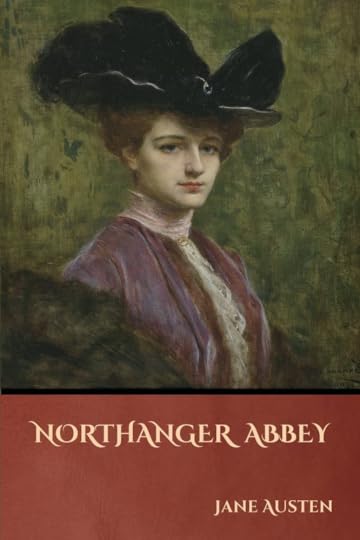
Another work, which I read pretty recently, is Northanger Abbey, by Jane Austen. Although Pride and Prejudice is usually considered one of her best works, this novel by Austen also possesses the spirit of young love, a bit of gothic paranoia, and the usual charade of “people going to each other’s houses” that was popularised by Austen in her novels.

One of the novels that is widely recognised as a popular novel of the era is Jonathan Swift’s Gulliver’s Travels, published in 1726. Written in the form of a travel journal, it provides insight into Lemuel Gulliver’s travels into the fictional lands of dwarfs, giants, talking horses and more. Each race is stranger than the last, and the novel is full of scathing satiric comments about the human race.

The other work is an epic poem by John Milton, published first in 1667, titled Paradise Lost. It tells the story of Lucirfer’s fall from heaven, the story of Adam and Eve, and the deception of Eve by Lucifer. It takes an interesting perspective on biblical events, presenting the fall of the angels from Satan’s point of view, and is a novel that depicts the rational spirit characterised by the neoclassical age.

Shakespeare’s Hamlet, Romeo and Juliet, Macbeth, Much Ado About Nothing, Measure for Measure, and As You Like It, for example, are some of the plays that come to mind immediately. Shakespeare’s wit, humour, and his ability to manipulate the iambic pentameter (the meter in which most of his works are written) is impressive.

As for Christopher Marlowe, I can vouch for Doctor Faustus, which premiered as a play on stage in 1592. It is a tragedy which narrates the story of Faust, who makes a deal with the devil to acquire endless knowledge. The Elizabethan era was known for its hunger for knowledge, and its belief in the rational ability of humans — two themes which are wonderfully encapsulated in the play.

Literature available from this era is scarcer as compared to the previous eras we discussed. But, I’ll recommend two of the works I’ve read, which happen to be the most well-known works from these eras.
The first is The Canterbury Tales by Geoffery Chaucer, written in 1392 in medieval English, which is significantly different from the English spoken today. Some versions offer a “translation” into a modern version of English. The premise of the book is that travellers are making a trip to Canterbury, and they tell each other stories. The book includes themes of religion, class, and satiric comments.

The second is Beowulf, believed to have been written around 700 to 750 CE, in Old English. It tells the story of the prince of the Geats, Beowulf, and his adventures up to his death. It has some passages of wonderful descriptions, and the limitation of words leads to some interesting choices of kenning words.
So, while these works are just the surface of the ever-growing canon of English classics, they can provide you with the skills you need to make reading classics easier. So, this year, make it a goal to read these, and you’ll find several stories that are enjoyable once you get past the label of “classics”.
ABOUT THIS AUTHOR

Mrunal Rajadhyaksha is a student currently studying English Literature in Ruia College. She is the head of the editorial team of The Ruiaite Magazine, and an avid participant in cultural festivals happening around her. She is passionate about reading, art and history, and the sea. She plays the guitar as a hobby.



